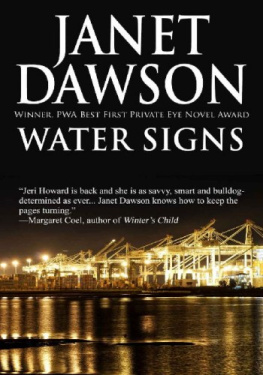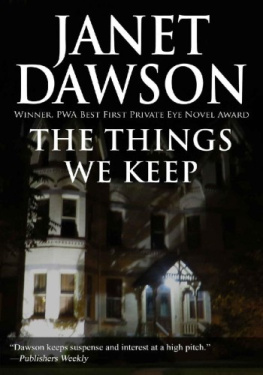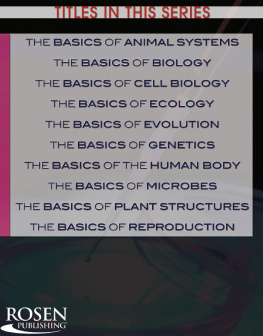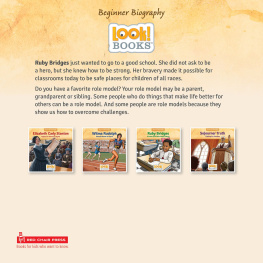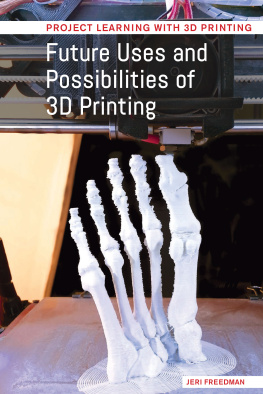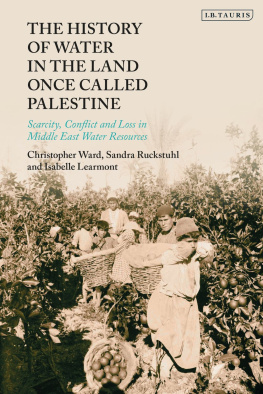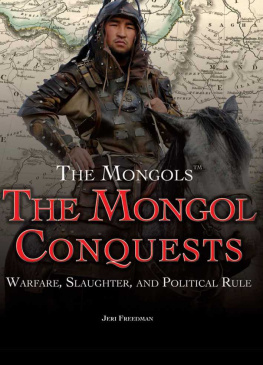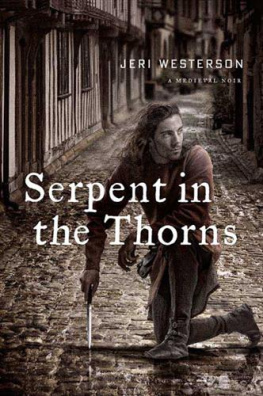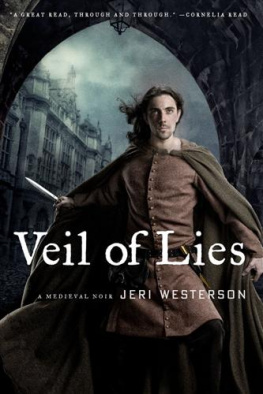This is a work of fiction. Characters, places, and events are the product of the authors imagination or are used fictitiously. Any resemblance to real people, companies, institutions, organizations, or incidents is entirely coincidental.
I am grateful for the assistance of Roger Cunningham, who graciously took me out on the Estuary in his boat Selkie , so I could look at the waterfront from the water. I also appreciate the input of Heather Hood, my former coworker at UC Berkeleys Institute of Urban and Regional Development, for information on how developments are approved and built.
I also wish to thank John and Susan Daniel of Perseverance Press, for publishing my books; Meredith Phillips, editor extraordinaire; and Eric Larson of Studio E Books for his excellent book design.
Chapter One

I t was a season for funerals.
I dont like funerals. They make me sad.
Id been to three of them in the past six weeks. Uncle Dom was the first. He was my great-uncle, on my mothers side of the family. Dominic Ravella was a salty old fisherman who spent his whole life in Monterey, fishing the waters of the beautiful bay and the restless Pacific Ocean. After he retired, he spent his days playing bocce at the courts near the old Customs House. He was well into his nineties when age and a life well lived caught up with him in late September.
The funeral was at St. Angela Merici Catholic Church on Lighthouse Avenue in Pacific Grove. The church was crowded, standing room only. A lot of those people were related to Uncle Dom, by blood or marriage. After the funeral, we went back to the house hed shared with Aunt Teresa, who had been his high school sweetheart. People filled the house and the backyard. We ate, drank wine, and told stories as the sun descended, turning Monterey Bay into shimmering gold.
Norm Gerrity was the second. Norm was a fellow private investigator whod started his working life as a cop in Boston, putting in thirty years on the force. He had moved to San Jose after his wife died, to be closer to his daughter and her family. Wrangling grandkids only went so far, though. Once a cop, always a cop, he told me in that Boston accent. So he had obtained his California PIs license and worked out of his home.
Norm and I had connected during a case several years earlier and friendship grew out of that. I knew I could count on Norm and his insight. I also knew he was getting on in years. At some point hed mentioned that his daughter had surprised him with a seventy-fifth birthday party. In early October, I thought about him, realizing I hadnt heard from him in a while. I called and got his voice mail. I left a message, hoping hed check in with me. The next day, his daughter returned my call, telling me Norm had just died, due to a bout with pneumonia. She told me when and where the services would be held. I was there to pay my respects.
The third funeral, which took place in the second week of October, was the hardest of all.
Errol Seville was my mentor. He was the private investigator whod zeroed in on me when I was working at a law firm in Oakland. He thought Id make a good operative, so hed brought me into his own agency. I worked for Errol for several years after Id obtained my own PIs license. He was a superb investigator, an excellent teacher, a man with a mordant sense of humor.
Then Errol had a heart attack, his second. He closed his agency and retired. He and his wife Minna went to Carmel, where they had a house. I visited him when I could. He was enjoying his retirement. The last time I saw him, he had just celebrated his eighty-third birthday. Errol being Errol, he joked about the odds of making it to ninety.
With his ticker, the odds were against him. The third heart attack was fatal. And once again I went to a funeral.
As October moved inexorably toward November, I wasnt in the mood to hear that anyone else I knew was dead.
Thats when Madison Brady showed up in my Oakland office.
Best laid plans, right?
Chapter Two

M adison Brady had the same intense blue eyes as her father, piercing me now with her gaze as she leaned forward and put her hands on my desk.
I was surprised to learn that Calvin Brady had a daughter in her twenties, and even more surprised when she showed up in my office on Tuesday morning. Cal was an acquaintance, a former colleague, back in the day when I worked for Errol.
Cal had told his daughter something different.
He said you were a friend. Madison tugged at the collar of her shirt, a black-and-red checked flannel worn over a pair of tight black jeans. Thats why Im here. I dont know who else to turn to. The cops dont seem to be interested in the truth. Dad was murdered. I just know it. I want you to find out who killed him.
I was still processing the news that Cal had died. Truth be told, I didnt know much about his personal life. We had worked together for less than a year. As coworkers, wed kept our private lives separate from our work lives.
Saying Cal Brady and I were friends was a stretch.
I didnt correct Madisons assumption. Instead I leaned back in my office chair. I didnt know Cal was dead. I saw him last week, at Errol Sevilles memorial service in Carmel. Tell me what happened. And why the police arent interested.
She frowned and fingered one of the gold hoops she wore in her earlobes. Dads body was found in the Estuary on Sunday morning. People are saying Dad was drinking on the job and he must have fallen into the water and drowned. Thats total nonsense. But Im afraid the police might believe it. She stopped and took a deep breath, then let it out with a frustrated sigh. It cant be true. Dad wasnt drinking anymore. He was sober. He hadnt had a drink in over three years. Believe me when I say that.
I didnt say anything. I considered what she was telling me now, and what Cal had told me the week before. I spoke with him after the memorial service, when those of us who had attended gathered at the Sunset Center in Carmel, raising glasses and sharing anecdotes about Errol. I was drinking Chardonnay. Cal sipped from a bottle of sparkling water. He made a point of telling me he was sober now. That was a good thing. Because Cals alcoholism was the reason he had been fired from the Seville Agency.
Where was your father working? I asked.
Dad was a security guard. He worked for a company here in Oakland, called Manville Security. Hed been with them three years or more. Since last spring he had been working at a construction site for a development thats being built on the waterfront. His schedule varied between days and nights. Saturday he was on the night shift, eleven at night till seven in the morning.
Which development? Brooklyn Basin?
Madison shook her head. Brooklyns the big one. Dad was working on a smaller site nearby. Its called the Cardoza project.
I nodded. Both projects were in the process of transforming stretches of the Oakland waterfront south of Jack London Square.
A security guard. Cal hadnt mentioned any details about his employment when Id seen him at Errols funeral. All he said was that he was living and working in Oakland. We hadnt actually talked that much. The focus of what conversation we did have was Errol, our late boss.

